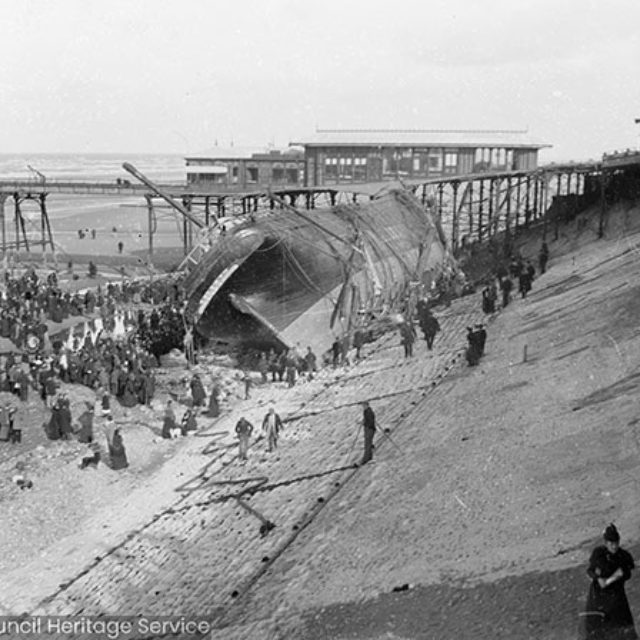By Mike Coyle

The history of the Blackpool lifeboat is characterised with the ‘manly doings’ and bravery in the teeth of a relentless sea. However little is written of the others, without whose intervention, there would not have been a lifeboat established at Blackpool over 150 years ago.
This is a story of alternative heroics, how a preacher historian, a congregational minister and a group of women with foresight, were able to stir a community to found the towns own lifeboat. Until the 1800s it had fallen on the fishing families of the town: the Bickerstaffes, Jollys, Parkinsons, Parrs, Rimmers, Salthouses, Stanhopes and Swarbricks to launch the boats in order to save lives, vessels and cargoes. All too often, and in spite of their best intentions, rescue efforts were uncoordinated and dependent on who and what boats were available at the time. The prospect of a fully-functioning coordinated service was some time away. That is not to say that there was a groundswell of opinion in favour of a ‘Lifeboat Service.’ However it took a series of disparate events to prompt effective action.
In 1837 the Reverend William Thornber, Vicar of St John’s Blackpool, was engaged in writing his ‘Historical and Descriptive Account of Blackpool and its Neighbourhood.’ Coincidently, he had been writing about the shipwrecks along the Fylde coast, when, looking from his window, he noticed a commotion in the sea. He put down his pen and ran down to the beach to witness the grounding of a brig on the sandbank. He was probably witnessing the wreck of the ‘Royal Oak’ in November 1837. She was inbound for Liverpool from Carrickfurgus. Following the incident, he persuaded the Liverpool Dock Commissioners to contribute £20 towards the £100 required to fit out a lifeboat.
At about the same time the Reverend R.R. Redman of Victoria Congregational Church raised the issue of the need for a lifeboat with his congregation. A visitor, Mrs Brown of Manchester, heard the impassioned plea and showed a deep interest in the idea.
She immediately contributed £100 to assist any local fund to be formed. Another initially anonymous lady and her daughter pledged a further £250. The lady and her daughter were revealed to be Mrs and Miss Hopkins, widow and daughter of Robert William Hopkins of Preston. Miss Atherton of Manchester donated a further £100. Mrs Eccles, of Blackburn, provided land onto which would be built the first lifeboat station.

In January 1864 a lifeboat committee was formed and by May of that year a coxswain appointed. The first lifeboat, built locally by Robert Bickerstaffe, was launched with great ceremony on the 20th July 1864. Its name reflected the generous donation of Mrs Hopkins and her daughter. It was called the ‘Robert William’ and by September of that year it was facing its first challenge. In the teeth of a howling gale. The Robert William set out in aid of the brig ‘St Michael’, foundering whilst on its way from Le Havre to Fleetwood, rescuing fourteen crew from the wrecked vessel.
From then on the Blackpool Lifeboat would rescue 163 seafarers on 121 ‘shouts’ and all thanks to the ladies and Reverend Gentlemen.


